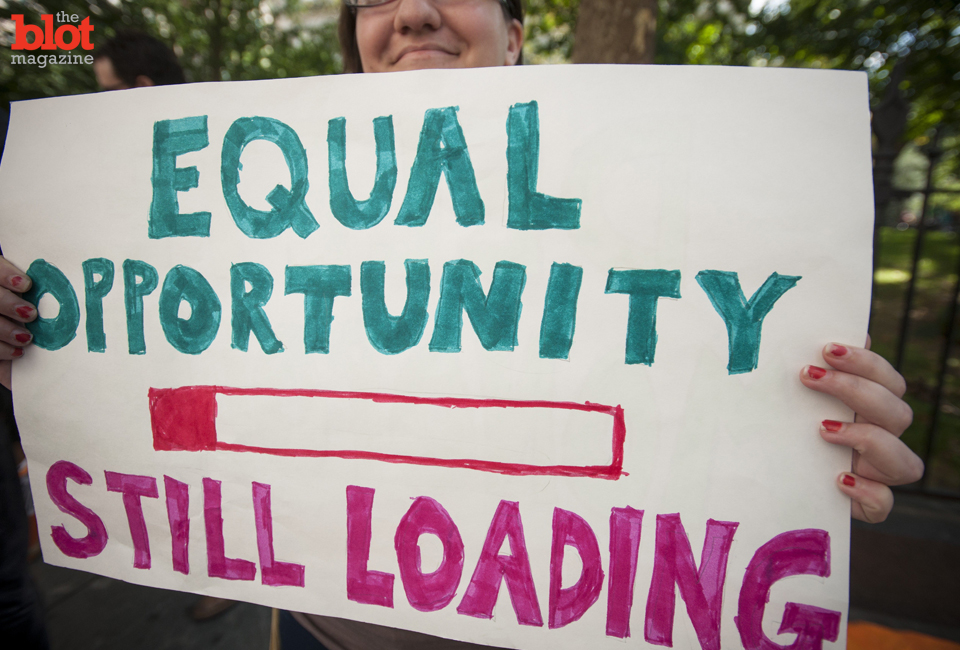
On Sunday, Comcast Corporation took out a full-page color advertisement in the San Francisco Chronicle newspaper in which the telecommunications giant doubled-down on its position that it supports “network neutrality,” or some parts of it anyway.
The ad (which costs $61,000) opened with Comcast’s assertion that it is “committed to an open Internet,” supporting this argument with five points — among them, that Comcast is the only Internet service provider (ISP) to be fully bound to legacy “network neutrality” rules, and that Comcast doesn’t prioritize Internet content or slow down the delivery of content to customers.
The ad is part of Comcast’s larger campaign to convince the public and politicians that the company welcomes the principles of “network neutrality” as it looks to convince federal regulators to green light its proposed merger with the second-largest pay TV company Time Warner Cable. Comcast’s message is simple: We’ve been a good company for years, and we’re going to continue to be an advocate for our customers — just look at all the commitments we’ve made, and all the rules and regulations we follow.
But it’s a delicate balancing act. At the same time, Comcast stands to benefit from looser federal regulations that would permit Internet providers like Comcast to speed up Internet traffic for certain services like Netflix or YouTube that pay ISPs a premium (or, conversely, slow down Internet speeds for service that don’t).
Consumers might walk away thinking Comcast’s commitment to “network neutrality,” or its offering of budget Internet service to low-income families, is self-imposed. Just the opposite is true — the broader picture reveals Comcast’s various rules, regulations and services were mandated as part of the company’s quest to grow larger, and not all customers benefitted.
To that, here’s a breakdown of each one of Comcast’s points as presented in the Chronicle:
Comcast supports Net Neutrality. We are the only Internet service provider in American legally bound by full Net Neutrality rules.
Comcast’s support of “network neutrality” was never a goodwill gesture to consumers. The company agreed to be bound by “network neutrality” rules in 2010 as part of its proposed merger with television giant NBCUniversal (which was eventually approved).
But that’s not to say Comcast will always be bound by those rules. The very definition of “network neutrality” is up for debate right now — and if federal regulators decide “network neutrality” doesn’t extend to treating all Internet content the same, then Comcast would be well-within its rights to demand a premium from services like Netflix or YouTube in exchange for faster delivery of streaming video.
In fact, Comcast supports a proposal that would modify the definition of “network neutrality” to do just that. The proposal would prohibit Internet companies from blocking access to content, but doesn’t prohibit companies from slowing down access to websites and web services — Internet companies could slow down services to a crawl, rendering them unusable, unless the services or consumers pay a premium to reliably access the content (more on that later).
Read more: City Council to Comcast: You’re Not Welcome in This Town
Last, Comcast fails to say anywhere in its advertisement or associated blog posts that the company is only bound to full “network neutrality” rules until 2018. That was the deal made with federal regulators when Comcast’s merger with NBCUniversal was approved four years ago. That same commitment would extend to Time Warner Cable customers if the merger with Comcast is approved, but only until 2018. After that, who knows?
Comcast won’t block access to lawful content.
There’s two things that are concerning with this argument. First, Comcast has never explicitly said what it considers to be “lawful content,” and that’s problematic. Could Comcast, at its sole discretion, block access to the Tor network because some “hidden” websites are used to purchase drugs? Could it suddenly block access to SnapChat or WhatsApp out of concern that people might be using the services to transmit child pornography? Could it block access to Scribd, Dropbox or Box because certain accounts on those sites might host jihadist newsletters and magazines?
The other problem is the definition of “block.” Comcast may not physically prevent customers from accessing certain websites or services, but it could make it difficult for customers to enjoy certain websites and services which Comcast finds to be a challenge to its business. The end result would, essentially, be the same.
If you think that’s not possible, think again: It’s already happened. Last year, Comcast was caught throttling the connection speeds of customers who downloaded files using the BitTorrent service. Undeniably, BitTorrent is a popular service for illicitly sharing movies and music with others on the Internet — and Comcast, as a corporation that owns several content studios. So it’s understandable Comcast would see BitTorrent as a threat and want to do something to protect its investments.
But there’s a handful of content creators who have come to embrace BitTorrent as a distribution platform, and have chosen to legally and freely offer their works for download through the service. Comcast never attempted to differentiate between the two — it judged all BitTorrent traffic to be bad, and punished every customer who used the service by throttling their speeds — even if customers were using the service legally.
There are already federal laws on the books that protect content creators with respect to the illegal distribution of media online. So Comcast’s move to throttle the Internet speeds of customers who used BitTorrent was not just bad practice, it was completely unnecessary. But Comcast’s arbitrary judgment as to what is and is not “lawful content” opens the door for it to repeat this action time and time again against websites and services with which it sees a threat or otherwise disagrees with. That is, undeniably, bad for consumers.
Comcast doesn’t prioritize Internet traffic or have paid fast lanes.
… and …
Comcast won’t throttle back the speed at which content comes to you.
Comcast is pretty bold to claim it won’t slow down the speed of websites and services, considering it did exactly that just one year ago.
“Charity” vs. “Requirement”
Remember when Netflix customers were ticked off that Comcast was preventing Internet users from accessing high-quality videos? Things only got better for Comcast users earlier this year after Netflix begrudgingly agreed to pay Comcast money for direct access to its Internet customers. That sure sounds like Comcast slowing down Internet traffic unless a service (or consumers) pay for a fast lane.
Comcast argues that this comparison is misleading — that Netflix’s own business dealings were to blame for a reduction in video quality — but it really doesn’t matter. Consumers don’t care to know the intricacies of how the online world works. They just want what is sold to them: Fast access to the Internet. Anything less seems like Comcast robbing customers of service that they pay (a lot of money) for.
Comcast Internet Essentials will make the Internet more accessible to low-income families.
Here, Comcast again tries to come off as the good guy — the large conglomerate that offers affordable Internet service to struggling families as an act of charity.
It is true that Comcast offers budget Internet service to low-income families — it costs $10 a month, has no installation fees, offers basic Internet speed for accessing e-mail, websites and YouTube videos and comes with a guarantee that the service rate will never go up. To qualify, families must not currently have Comcast service or owe Comcast any money, and must have at least one child enrolled in a federally-subsidized school lunch program.
Here’s the catch: The Internet Essentials program isn’t so much an act of charity as it is a requirement imposed on Comcast by federal regulators as part of the company’s approved merger with NBCUniversal. To Comcast’s credit, regulators only enforced the budget Internet service option for three years — those three years have since lapsed, and Comcast is still offering it. In fact, it’s modified the program in order to make more families eligible for the service, and it’s announced it will continue to offer the budget Internet plan. But its worth noting the announcement to expand the budget Internet offering beyond its three-year run came just one month after Comcast went public with its plan to merge with Time Warner Cable — so the move may be less charitable and more intended to appease federal regulators who are currently considering the merger.
It’s also worth remembering that Comcast is currently under no obligation to continue the low-budget Internet service, and that absent a commitment from regulators it could go away if the Time Warner Cable merger goes through.
Read more: Obama, America’s ADD and Net Neutrality
When you read Comcast’s full-page advertisements in newspapers, remember the company has just two goals: Sell services, and make a profit. That’s true of every telecom company in America, but Comcast has proven time and time again it cares more about retaining customers than it does in providing them with a good service.
And above all else, it cares about money. That is why Comcast is looking to create the largest pay TV and broadband company in America by merging with Time Warner Cable. That is why Comcast service representatives are trained to harass customers into keeping their service. And that is why, despite its advertising campaign, Comcast supports proposed regulation that would allow it to charge special premiums and fees for access to the “open” Internet. Don’t forget that.
Matthew Keys is a contributing journalist for TheBlot Magazine.





